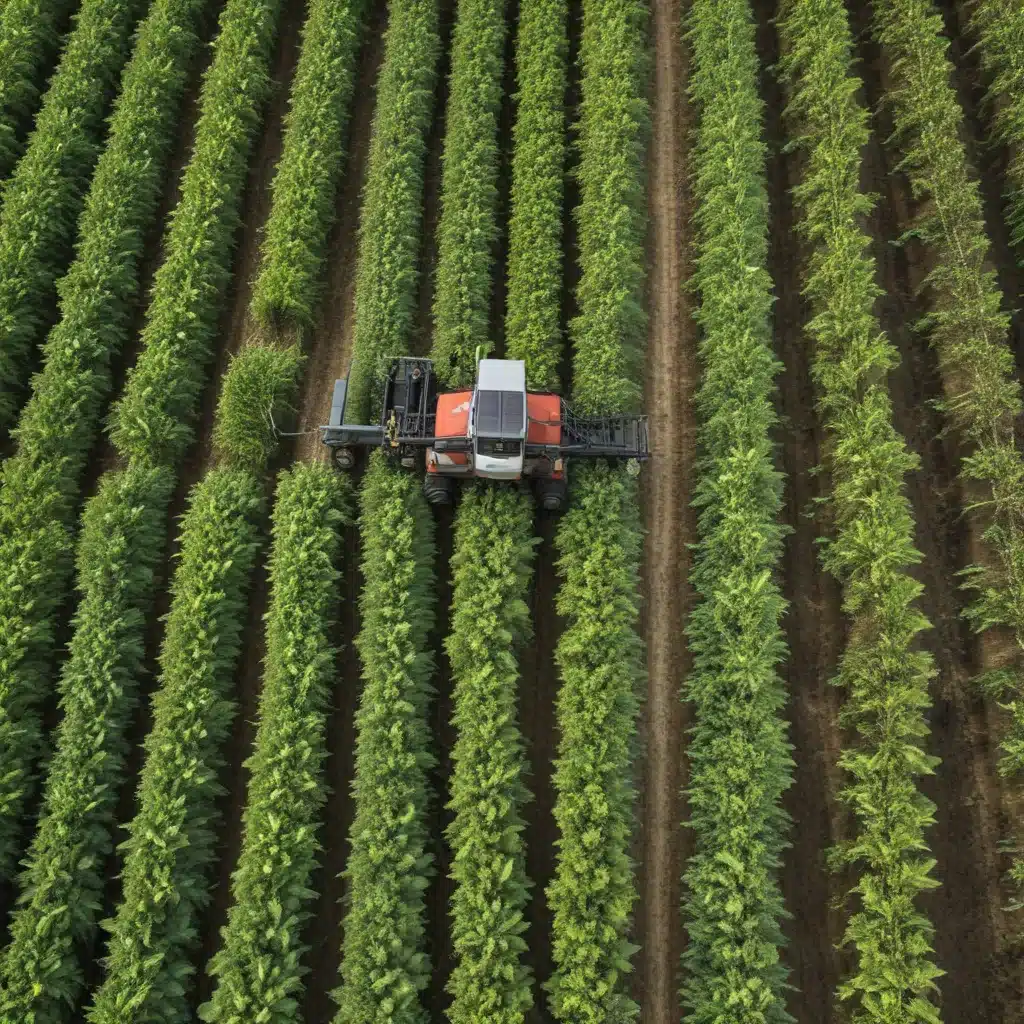
The Transformative Power of AI in Modern Agriculture
The global population is projected to reach 10 billion by 2050, placing immense pressure on the agricultural sector to increase crop production and maximize yields. To address this looming challenge, the industry is embracing innovative practices and leveraging technological advancements to enhance productivity on existing farmland. One of the most promising solutions on the horizon is the integration of artificial intelligence (AI) in agriculture.
Until recently, the idea of AI and agriculture existing in the same sentence may have seemed like an unusual pairing. However, the rapid advancements in agricultural technology are revolutionizing farming practices, making AI an increasingly essential tool in addressing the global challenges of climate change, population growth, and resource scarcity.
Empowering Precision Agriculture through AI
At the heart of the transformation is the power of AI-driven precision agriculture. By combining the best soil management practices, variable rate technology, and advanced data management, AI enables farmers to grow more crops with fewer resources, maximizing yields while minimizing costs.
AI-powered predictive analytics is already paving the way into agribusinesses, allowing farmers to gather and process more data in less time. This data-driven approach enables them to:
- Analyze market demand and forecast prices
- Determine optimal times for sowing and harvesting
- Explore soil health to collect insights
- Monitor weather conditions and recommend the application of fertilizers and pesticides
Moreover, AI-powered computer vision can accurately detect the presence of pests or diseases, helping farmers to act quickly and prevent the spread of threats to crop health. This technology has been used to detect apple black rot with an accuracy of over 90% and identify various insects, such as flies, bees, and moths, with the same degree of precision.
Intelligent Automation and Robotics: Revolutionizing Agricultural Workflows
The integration of AI in agriculture extends beyond precision farming techniques. It is also transforming the way agricultural tasks are carried out, through the adoption of intelligent automation and robotics.
Automated farm machinery, such as driverless tractors, smart irrigation, and fertilization systems, are already being deployed to address the persistent challenge of labor shortages. These AI-driven tools are far more efficient and accurate compared to human farm workers, working longer hours and reducing the risk of errors.
Moreover, IoT-powered agricultural drones, smart spraying systems, and AI-based greenhouse robots are revolutionizing the way farmers approach tasks like crop monitoring, pest control, and harvesting. By automating these labor-intensive processes, AI is not only improving efficiency but also enhancing the overall sustainability of agricultural practices.
Optimizing the Agricultural Supply Chain with AI
The benefits of AI in agriculture extend beyond the farmgate, with the technology playing a crucial role in optimizing the entire agricultural supply chain. AI-powered yield mapping, for example, uses machine learning algorithms to analyze large datasets in real-time, helping farmers understand the patterns and characteristics of their crops. This enables them to make more informed decisions about resource allocation, sowing, and harvesting, ultimately improving their return on investment.
AI-driven computer vision also has applications in the post-harvest stage, automating the sorting and grading of produce based on factors like size, shape, and color. This not only streamlines the logistics of getting crops to market but also ensures that farmers can effectively categorize and price their products.
Furthermore, AI-powered risk management and predictive analytics can help farmers mitigate challenges throughout the supply chain, from anticipating weather patterns to forecasting market demands. By providing actionable insights, AI empowers stakeholders to make more informed decisions, reduce waste, and enhance the overall efficiency of the food system.
Overcoming Barriers to AI Adoption in Agriculture
While the benefits of AI in agriculture are undeniable, the widespread adoption of this transformative technology is not without its challenges. One of the primary barriers is the initial investment cost, which can be prohibitive for many farmers, especially small-scale operations and those in developing countries.
Additionally, there is a lack of understanding and familiarity with AI-driven solutions among agricultural workers. Overcoming this hesitation will require concerted efforts from both the public and private sectors to provide training, resources, and clear demonstrations of the tangible benefits of AI in farming.
Another significant hurdle is the infrastructure gap, as many regions around the world lack the necessary technological foundation to fully leverage the capabilities of AI. Addressing this issue will require a collaborative approach, with technology providers working closely with farmers and policymakers to build the digital infrastructure needed to support the integration of AI in agriculture.
Unlocking the Full Potential of AI in Agriculture
Despite these challenges, the future of AI in agriculture is undoubtedly bright. As the technology continues to evolve and become more accessible, the transformative impact on food security, sustainability, and overall efficiency of the agricultural sector will become increasingly pronounced.
By partnering with experienced technology providers, such as https://itfix.org.uk/, farmers and agribusinesses can navigate the complexities of AI implementation and unlock the full potential of this revolutionary technology. Through custom solutions, ranging from farm management systems and vertical farming platforms to precision agriculture drone analytics, these partnerships can help drive the digital transformation of the agricultural industry, ensuring a more sustainable and resilient food future for generations to come.
As AI continues to reshape the agricultural landscape, the role of farmers is also evolving. Rather than being manual laborers, they are increasingly becoming the planners and overseers of smart agricultural systems, requiring a deeper understanding of IT solutions and agribusiness intelligence. By embracing this technological shift, the agricultural industry can not only address the pressing challenges of our time but also pave the way for a more prosperous and sustainable future.












